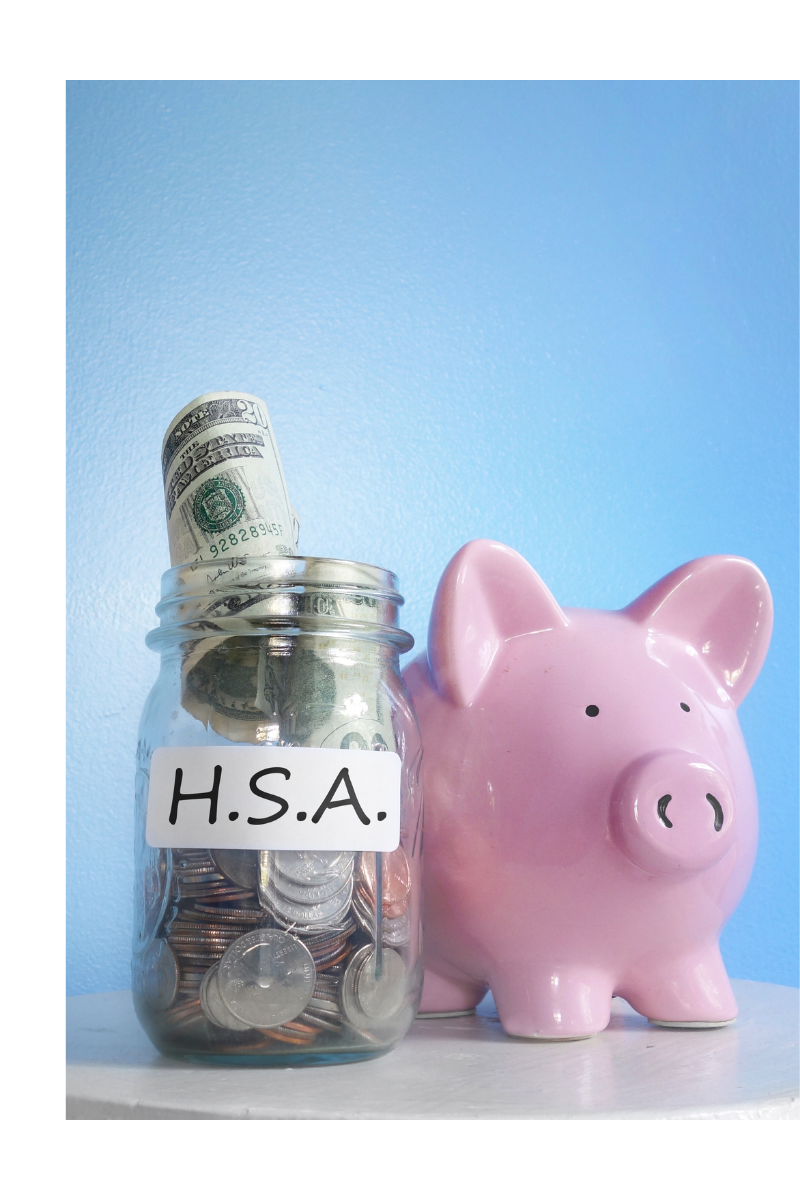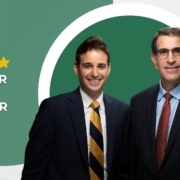Ask an Advisor: Is an HSA Right for Me?
Health Savings Accounts (HSAs) have become increasingly popular as a flexible and tax-efficient way to manage healthcare expenses and build savings for the future.
With nearly 38 million HSAs in the United States as of 2024—a figure projected to exceed 43 million by 2027—it’s clear that more people are recognizing the value of this versatile financial tool. But is an HSA the right choice for you?
To help you decide, let’s explore the essentials of HSAs, their advantages and limitations, and the critical factors to weigh when considering how they might fit into your overall financial strategy.
Is an HSA Right for You? 
Health Savings Accounts (HSA) offer a range of benefits, but they’re not a one-size-fits-all solution. Whether an HSA aligns with your needs depends on several factors, including your current financial situation, healthcare requirements, and long-term goals. Before opening an HSA, evaluating how it fits into your overall financial and retirement strategy is important.
HSAs are particularly advantageous for those who prioritize saving for future medical expenses, enjoy the tax benefits of contributing, and can manage the higher deductibles of a qualifying health plan. However, if you frequently incur medical costs or have limited savings, the out-of-pocket expenses associated with a high-deductible health plan may outweigh the benefits of an HSA.
By assessing your healthcare usage, income stability, and savings priorities, you can determine whether an HSA is the right choice for you. Let’s explore the key considerations to help guide your decision.
What is a Health Savings Account (HSA)?
A Health Savings Account is a tax-advantaged savings account designed to help individuals with high-deductible health plans (HDHPs) cover qualified medical expenses. Here’s an overview of what makes HSAs a valuable tool for healthcare and financial planning:
- Eligibility: To open and contribute to an HSA, you must be enrolled in an HDHP, a health insurance plan with higher deductibles but lower monthly premiums.
- Flexibility: Unlike Flexible Spending Accounts (FSAs), HSAs allow unused funds to roll over from year to year, making them an excellent option for long-term savings.
- Ownership: You own the account, not your employer. This means you can take it with you if you change jobs or retire, helping ensure your savings remain accessible.
- Contribution Limits for 2025: The IRS has set the annual contribution limits at $4,300 for individuals with self-only coverage and $8,550 for family coverage. Additionally, individuals aged 55 and older can make a $1,000 catch-up contribution.
HSAs combine immediate tax savings with the flexibility to save for future medical costs, making them a unique and potentially powerful tool in your financial strategy.
 Benefits of an HSA
Benefits of an HSA
HSAs offer a unique blend of healthcare and financial advantages, making them beneficial for individuals who are looking to optimize their health coverage and long-term savings. Beyond their well-known tax benefits, HSAs provide opportunities for strategic financial planning and future security.
- Triple Tax Advantage
HSAs provide a triple tax benefit differentiating them from other savings accounts. This feature allows account holders to save for medical expenses while helping maximize tax efficiency. Here’s how the three tax benefits work:
- Tax-deductible Contributions: Contributions help reduce your taxable income, lowering your overall tax liability.
- Tax-free Growth: Funds in your HSA grow tax-free, whether held in a savings account or invested in the market.
- Tax-free Withdrawals: When used for qualified medical expenses, withdrawals are tax-free, providing potential significant savings.
Additionally, many HSAs offer investment options, helping account holders grow their savings over time and build a tax-advantaged cushion for future healthcare needs.
- Long-term Savings Potential
Because HSA funds roll over indefinitely, they can be a supplemental savings tool for future healthcare expenses, including those incurred during retirement. HSAs can act as supplementary retirement accounts. While they are designed for medical expenses, their flexibility after age 65 allows non-medical withdrawals (taxed as ordinary income). This can help provide retirees with another source of funds, complementing IRAs or 401(k)s.
- Flexibility in Usage
HSAs can help cover many medical expenses, from doctor visits and prescription medications to dental and vision care. After age 65, withdrawals for non-medical expenses are taxed like ordinary income, similar to a traditional IRA. HSA funds can be used for qualified medical expenses for your spouse and dependents, even if not covered by your high-deductible health plan. This flexibility makes HSAs valuable for families managing healthcare needs.
- Generational Wealth Transfer
While HSAs are primarily for healthcare, they also allow for tax-efficient wealth transfer. If the account holder passes away, the funds can be transferred to a spouse’s HSA without tax consequences, helping ensure the account’s value remains intact for the family.
By combining flexibility, tax advantages, and long-term growth potential, HSAs are more than just a healthcare account—they’re a versatile tool that can help bridge the gap between immediate healthcare needs and future financial security.
Potential Drawbacks of an HSA 
While HSAs offer many advantages, they aren’t the right fit for everyone. Understanding their limitations is essential to deciding whether an HSA aligns with your financial and healthcare needs.
- Eligibility Limitations
To open and contribute to an HSA, you must be enrolled in a high-deductible health plan (HDHP). These plans often come with higher deductibles that may not suit individuals or families with frequent or significant medical expenses.
- Higher Out-of-Pocket Costs
Although HDHPs typically offer lower monthly premiums, their higher deductibles mean you’ll need to cover more out-of-pocket costs before insurance kicks in. This can be a financial strain, particularly if unexpected medical expenses arise.
- Investment Volatility
Many HSAs provide investment options that can grow your funds over time. However, like any investment, these options are subject to market fluctuations. There’s no guarantee of returns, and you could potentially lose money depending on market conditions and investment choices.
- Strict Withdrawal Rules
HSA funds for non-qualified expenses before age 65 are subject to income tax and a 20% penalty. Adhering to these withdrawal rules is essential to avoid unexpected costs and penalties that could diminish the account’s overall value. Carefully evaluating these potential drawbacks alongside a trusted fiduciary advisor can help you determine whether the benefits of an HSA outweigh its limitations for your situation.
 Make the Most of Your HSA With Agemy
Make the Most of Your HSA With Agemy
A Health Savings Account (HSA) can be a powerful tool for helping you achieve your financial and healthcare goals, but navigating the rules and strategies for maximizing its benefits can be complex. At Agemy Financial Strategies, we aim to give you confidence in your financial future by crafting robust portfolios focused on income and growth.
Our fiduciary advisors can help you integrate your HSA into a personalized financial plan, helping ensure it works seamlessly with your long-term goals. Here’s how we can help:
1. Maximize Contributions with Proper Guidance
Reaching the annual HSA contribution limit is a key step toward helping you maximize tax savings and growing your account. Our advisors can help review your financial situation and recommend a plan to take full advantage of these limits while balancing other savings priorities.
2. Optimize Your Investment Strategy
Many HSAs offer investment options that can help grow your balance over time. However, it can be challenging to understand which investments align with your risk tolerance and financial objectives. Our team can help you develop a tailored investment strategy that balances growth and stability to maximize your HSA’s potential.
3. Incorporate HSAs into Retirement Planning
An HSA isn’t just a short-term savings account—it’s a vital part of a well-rounded retirement strategy. After age 65, your HSA can act as a secondary retirement account, allowing non-medical withdrawals taxed as ordinary income. Our fiduciaries can help you integrate your HSA into a larger retirement plan, helping ensure you’re prepared for rising healthcare costs and other expenses.
4. Leverage Tax Efficiency with Strategic Planning
HSAs offer unique tax advantages, but their full potential is unlocked through careful planning. Our advisors help you optimize contributions, withdrawals, and investments to reduce potential tax burdens and enhance long-term savings.
Final Thoughts
At Agemy Financial Strategies, we understand financial planning is about more than numbers—it’s about creating a secure future tailored to your unique needs. Whether starting with an HSA or looking to incorporate it into a larger financial strategy, we’re here to help you make the most of this powerful tool.
Contact us today to learn how we can help support your financial health and security journey.
FAQs About HSAs
1. Can I open an HSA if I’m self-employed?
Yes, self-employed individuals can open a Health Savings Account (HSA). The eligibility requirements are as follows:
- You must be covered by a high-deductible health plan (HDHP).
- Other disqualifying plans, like Medicare, Medicaid, or TRICARE, can’t cover you.
- You can’t be claimed as a tax dependent.
2. What happens to my HSA if I change jobs?
Your HSA is portable, meaning you can take it with you when you change jobs. You can continue to use the funds for qualified medical expenses even if you are no longer enrolled in an HDHP.
3. Can I have an HSA and an FSA simultaneously?
HSAs and FSAs are similar in that they help you make qualified health purchases using tax-free funds. But with limited exceptions, you can’t have both. If you want to take advantage of your employer’s flexible spending account, you may be unable to contribute to your HSA.
4. What happens to my HSA if I don’t use all the funds?
Any unused funds in your HSA roll over to the next year, allowing you to continue growing your savings tax-free. There’s no “use it or lose it” rule, making HSAs an excellent tool for long-term savings.
5. Can I use HSA funds for my dependents?
You can use Health Savings Account (HSA) funds to pay for qualified medical expenses for dependents. This includes your spouse, children, and other dependents you claim on your tax return. You can also use HSA funds for dependents claimed by their other parent.
Disclaimer: This blog is for informational purposes only and does not constitute financial, tax, or investment advice. Consult the qualified fiduciary advisors at Agemy Financial Strategies for personalized guidance tailored to your situation.













Leave a Reply
Want to join the discussion?Feel free to contribute!